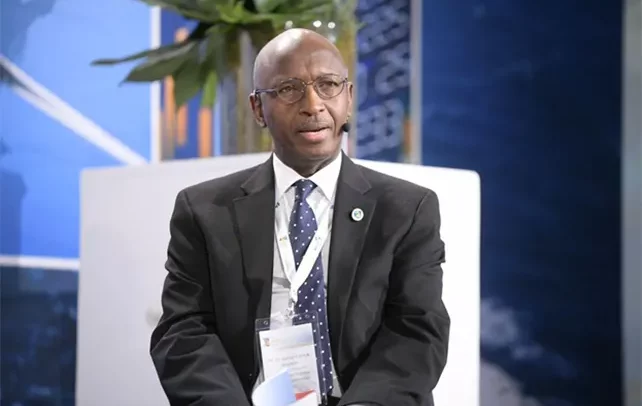Dr. Omar Farouk Ibrahim
SECRETARY-GENERAL of the African Petroleum Producers Organisation (APPO), Dr. Omar Farouk Ibrahim, has emphasised the need for African leaders to take ownership of energy access in their countries.
Speaking at the African Sustainable Energy Dialogue webinar, themed, “Bridging Africa’s Energy Access Gap- Challenges, Innovations and the Path Forward,” Dr. Ibrahim stressed that access to energy is a matter of leadership and that governments must spearhead efforts to achieve higher access rates.
“Access to energy, specifically electricity and commercial energy, is fundamentally a matter of leadership. Leaders who fail to prioritise and drive efforts to achieve higher access rates are being irresponsible. Electrifying a country requires government leadership and initiative, not individual efforts,” he said.
Dr. Ibrahim mentioned the challenge of Africa’s reliance on foreign currencies to facilitate development, while citing the establishment of the Africa Energy Bank by the African Export-Import Bank as a step towards producing energy for African people, rather than for external markets.
The APPO Secretary-General highlighted Ghana’s experience in developing its electricity infrastructure as an example of effective leadership. “Ghana’s first commercial electricity-producing plant was developed in 1966, and it took 23 years for the country to provide access to electricity to 19% of the population.
However, through concerted government efforts, including borrowing and mobilising funds, Ghana was able to accelerate electrification, reaching 87.5% access today,” he said.
Dr. Ibrahim also emphasised the importance of community participation in electrification efforts. He cited the Self-Help Electrification Programme, where communities contributed to the installation of infrastructure, as a key factor in Ghana’s success.
Senior Project Manager at the African Development Bank Group (AfDB), Monique Motty, has emphasized the need to examine the underlying issues hindering energy access in Africa. Monique Motty noted that the lack of leadership and systemic barriers are major obstacles to achieving energy access.
Monique Motty questioned whether Africa’s political systems are conducive to development, suggesting that the continent’s development has been shaped by external rules rather than African interests.
While acknowledging the need for increased financing, infrastructure development, and strong leadership, Madam Motty emphasised that these solutions are well-known in theory. Instead, she called for a deeper examination of the system in which Africa operates, suggesting that the energy barrier is a symptom of a larger problem.
Former Special Adviser to the President on Energy in Nigeria, Prof. Abubakar Sani Sambo mentioned that one of the major barriers to energy access is the limited financial capacity of both governments and consumers, stating that many African countries operate with tight budgets, prioritising sectors like healthcare, education, agriculture, and security, leaving minimal funds for capital-intensive energy infrastructure projects.
“As a result, public investment in energy is often insufficient to meet national electrification targets. Private sector participation, which could bridge this gap, is hindered by perceived and real risks, including macroeconomic instability, currency volatility, and inflation, which erode investor returns. Addressing energy access in Africa requires a comprehensive approach that tackles these complex issues,” he said.
BY Prince Fiifi Yorke


